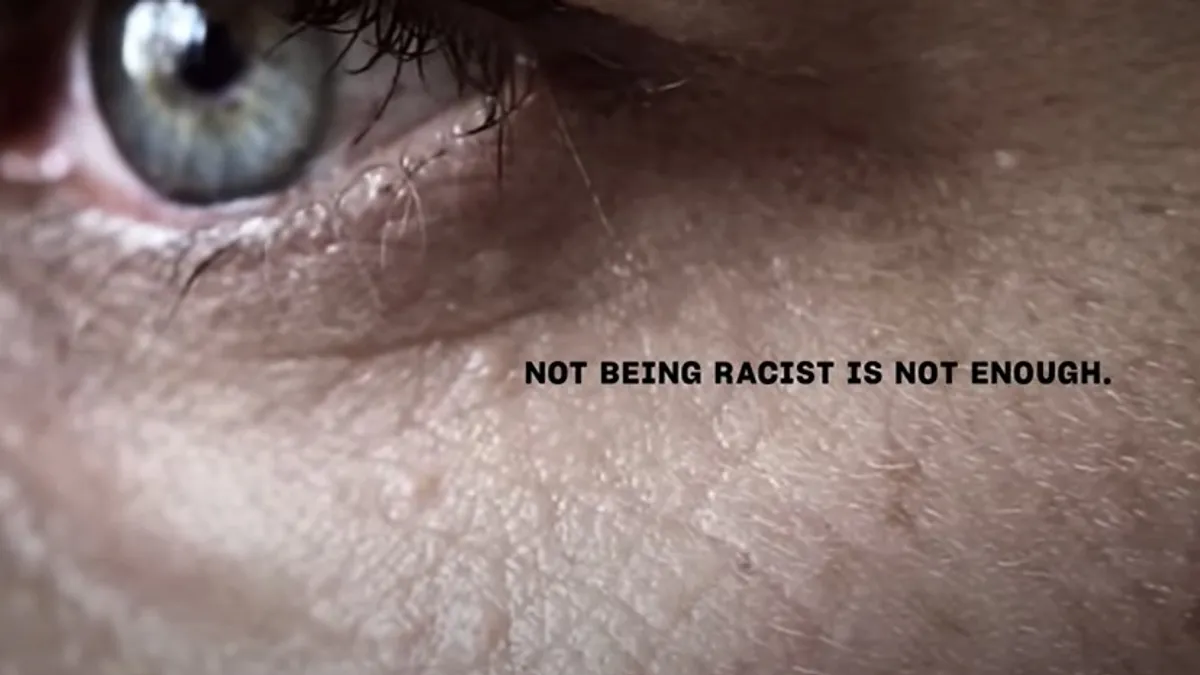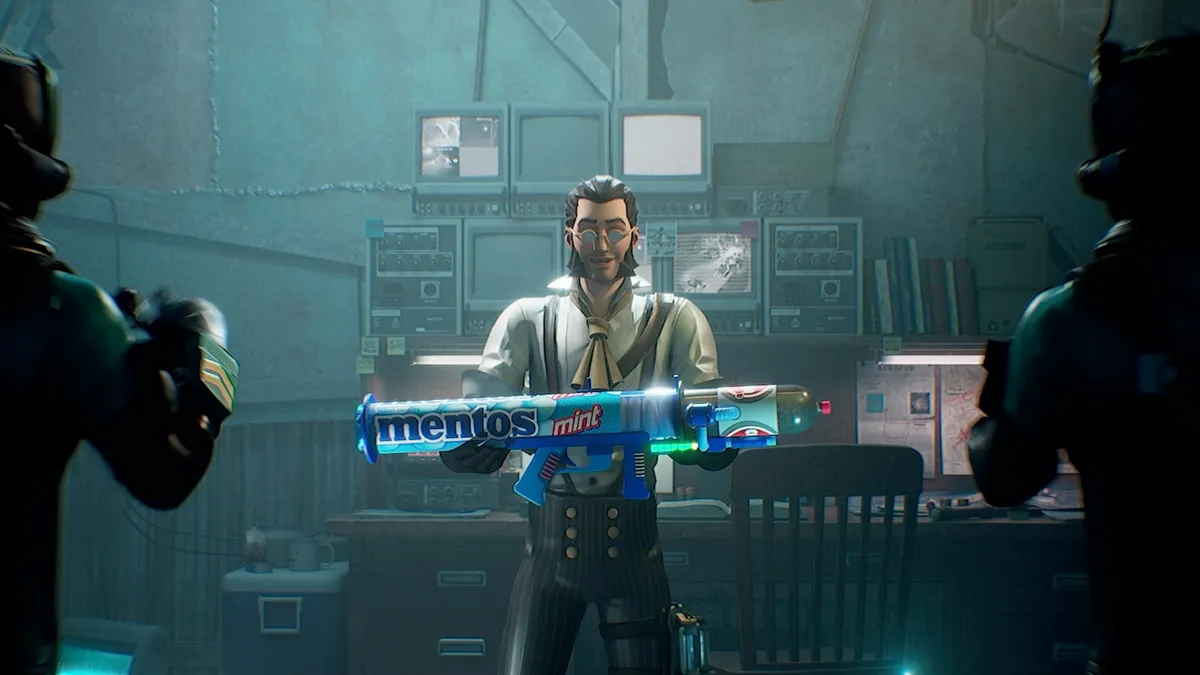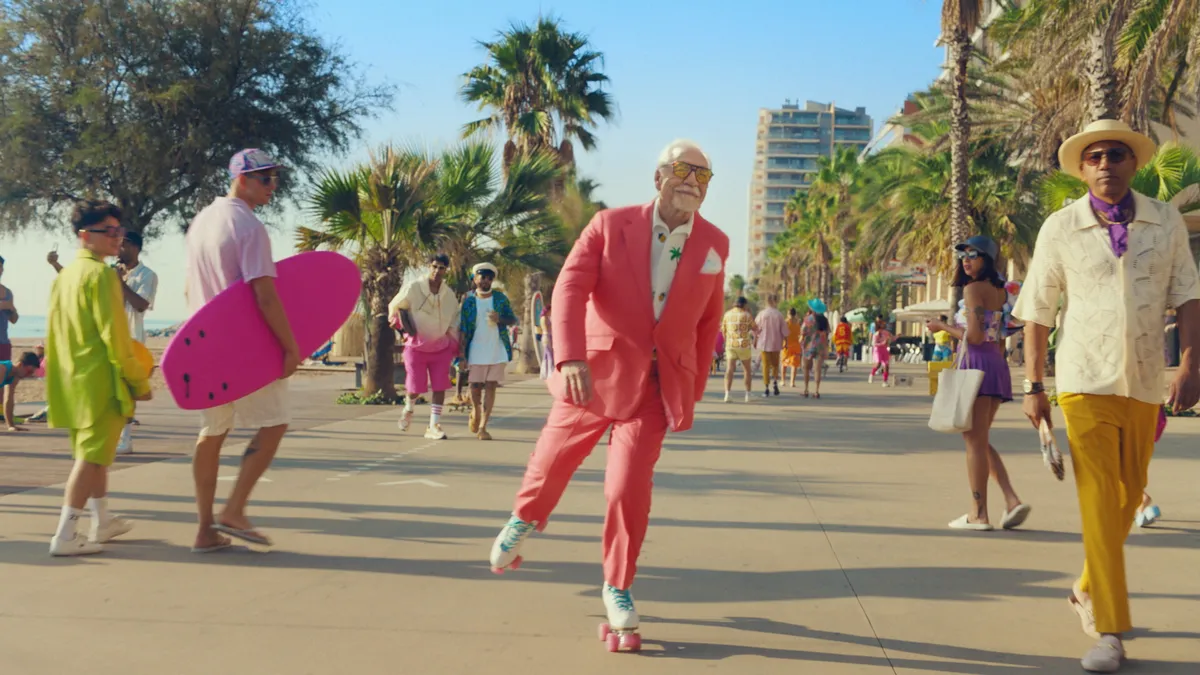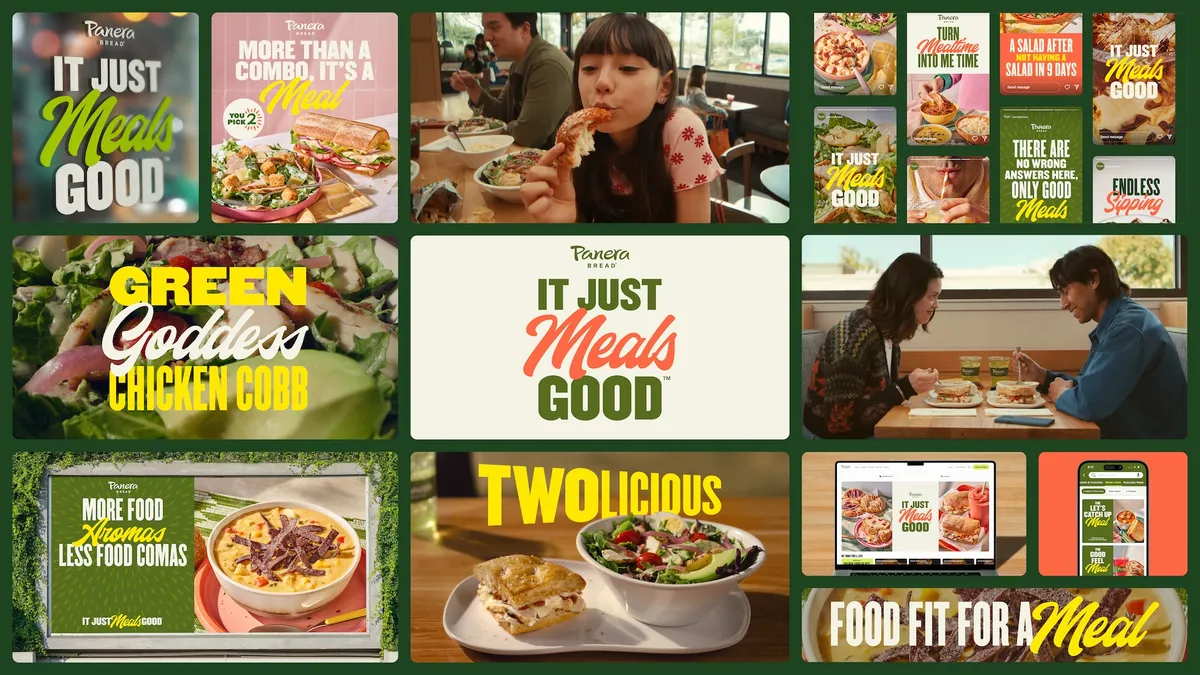Editor's Note: This is part of a package examining the first half of 2020. Dive into the key trends and stats from a transformative six months.
A lot can change in six months, but the first half of 2020 flipped marketing operations on their head essentially all at once. Since March, a pandemic has shuttered physical businesses and studios, curtailing ad production. At the same time, protests against racial injustice are nearing the two-month mark, with hundreds of brands joining in through a Facebook boycott that seeks to pressure the platform into curbing hate speech — an activist-driven effort that has so far produced meager results.
For an industry prone to hyperbole, marketing has truly experienced a period of unprecedented disruption in 2020, one that makes gauging success difficult. Each year, Marketing Dive catalogs the most impactful campaigns from H1, either those that provided concrete returns or best embodied a particular trend. What does such a list look like in a year where brand marketing largely fell off after the first three months, and amid a period of tumult that's waylaid most live events, including the Summer Olympics?
Below, Marketing Dive has assembled a number of efforts that speak to the industry's enduring creativity in bleak times and represent the considerable changes to the craft of marketing — in everything from creating ads via deepfakes to messaging strategies that address causes like Black Lives Matter.
Some of these selections predate a world reshaped by COVID-19 and mass civil unrest sparked by the killing of George Floyd in police custody. While they might feel like relics of a bygone era just a few months out, they still show brands operating at their best, providing humor or ingenuity that, if anything, might read as even more resonant today.
As marketers use the quieter summer period to map out their campaigns for the rest of the year, including the crucial holiday season, these ads can serve as a model for what's connecting with consumers at a time when seismic exterior disruptions are making them harder and harder to reach.
Procter & Gamble addresses racial inequality with 'The Choice'
While brands increasingly chime in on social issues, the Black Lives Matter movement is particularly challenging for marketers given its historical significance and the industry's own spotty track record on race.
This didn't stop brands like McDonald's, Nike and Procter & Gamble from speaking up in support of justice when widespread protests against racial violence reverberated through America following the murder of George Floyd by police. Those ads were met with mixed reviews by consumers, and no single entry can effectively exemplify how to market around such an important movement. However, P&G stands out for a well-rounded and well-supported approach that builds upon previous efforts to address racial inequality.
In June, the company debuted an ad that calls on white Americans to use their power to address racism. While "The Choice," created with Grey and Cartwright, was perceived as exploitative by some consumers, it's just one part of a multimillion dollar push by the CPG giant to address racial equality that also includes sponsoring two films from the Queen Collective on BET and a Time 100 Talks virtual event.
P&G also set four benchmarks for itself, including achieving 40% multicultural representation in the U.S.; accelerating its investments in Black-owned and -operated media companies, agencies and marketing suppliers; enacting reviews to ensure Black people — and all people — are represented fairly in its marketing and advertising; and taking steps, including withholding budgets, to ensure its advertising doesn't appear near hateful or discriminatory content.
By providing clear goals against which its efforts can be measured, P&G is saying its strategy will evolve and, hopefully, get stronger over time — the kind of long-term stand marketers must make.
Walmart spins associate's poem into hopeful video
One noteworthy shift in consumer sentiment in the first half was the massive outpouring of support for frontline workers, both those battling the coronavirus directly within healthcare and those working to keep the lights on at essential businesses. Walmart successfully tapped into the trend on several fronts with an uplifting ad based on a poem written by a department manager in Arizona, Terrell "Trizz" Myles.
In the 60-second commercial developed with agency FCB, Myles walks through an empty Walmart store while reciting verse that emphasizes resiliency during tough times, including staying connected despite social distancing measures. Animation flourishes accompany the lyrical messaging to illustrate both the tumult and glimmers of hope detailed in his "Hearts of Magic" poem.
With a sunnier outlook at the health crisis, Walmart spotlighted its ongoing services as an essential business offering goods like groceries during the pandemic, while letting an employee speak to his personal experience in a creative fashion.
"From the words to the delivery to the animation, the execution was spot-on," Steve O'Connell, partner and co-chief creative officer at Red Tettemer O'Connell + Partners, said in emailed comments. "And no doubt, had every retailer wishing they had an employee as creative as Myles."
Starbucks spotlights trans issues
In a year of unprecedented tumult, Starbucks has not always struck a consistent tone when it comes to diversity and inclusion. However, a U.K. ad from late January shows the coffee giant at its best, and far ahead of the competition when it comes to championing progressive causes.
Created with ad agency Iris, "What's your name" depicts a formative moment for transgender people, when they're recognized by their chosen names versus their birth names, or deadnames. The ad links to a regular occurrence at Starbucks — baristas calling out a customer order — but imbues the commonplace with significance as the central character, James, feels accepted for who he really is. The creative was inspired by real-world stories shared by customers on social media as they tested out names that best suited them on their Starbucks orders.
Beyond carrying one of the rare depictions of real transgender people in advertising, the campaign also featured a tie-up with Mermaids, an organization that supports transgender youth. Starbucks for a period sold mermaid cookies in stores across the U.K., donating a portion of the proceeds to the nonprofit group.
"[It] has a powerful, well-crafted storyline that takes a stance on values," Jed Meyer, managing director of North America for Ebiquity, said in emailed commentary. "It evokes a strong message consistent with Starbucks' ongoing campaigns valuing diversity and inclusion over the years."
Jeep scores with 'Groundhog Day' ad
Who remembers Super Bowl LIV? One of the more exciting football championships in recent years, the game's timing just before the coronavirus pandemic took hold in the U.S. makes it — like many things that happened in early February — easily forgettable. It doesn't help that the ads were mostly unremarkable despite the event typically being one of advertising's biggest stages.
Jeep's "Groundhog Day" was an exception. Though the spot used a similar playbook to other Super Bowl ads with a mix of celebrities and pop culture touchstones, it broke through where others didn't and gained widespread praise. One reason for the success was that Jeep and agency Highdive cleverly took advantage of the game's scheduling on the same day as Groundhog Day to convince Bill Murray, famously ad-averse star of the film bearing the same name as the annual holiday, to reprise his role and revisit several scenes from the movie to showcase the sturdiness of a Jeep. The tagline, "No day is the same in a Jeep Gladiator," was a play on how Murray’s character relives the same day over and over.
In hindsight, the ad looks like an impressive feat of prescient marketing, given how during the pandemic, many people feel like they are stuck reliving the same day as they rarely leave their homes. Jeep savvily recognized this and brought the ad back while tweaking it to encourage people to stay at home, helping the brand earn some goodwill even as sales plummeted.
Oscar Mayer's 'Front Yard Cookout' is practical and hopeful
Oscar Mayer's "Front Yard Cookout" is notable for quickly jumping on the impact of widespread social distancing and relating it back to the brand's values. TV and digital video ads urged people to move cookouts to their front yards as a way to socialize while staying safe, including by standing "12 hot dogs apart." The effort arrived in April, just over a month after a national emergency was declared and six weeks before The Wall Street Journal wrote about Americans rediscovering the social front yard.
Whether you're in your front yard, by a window, heck even if you're on the side of the road, we want to see your version of a #FrontYardCookout ????
— Oscar Mayer (@oscarmayer) May 2, 2020
For every tweet you share through the month of May with #FrontYardCookout, we’ll donate a meal to @FeedingAmerica, up to 1 million. pic.twitter.com/DjXOYJ5GLE
Oscar Mayer, whose parent Kraft Heinz has seen sales surge as people return to comfort food, also recognized that consumers want brands to make a tangible contribution during the pandemic and tied the campaign to a donation of up to 2 million meals to Feeding America at a time when food insecurity was rising. The brand worked with agency McGarryBowen on the campaign.
In the early days of the pandemic, many brands released ads built around the theme of "we're all in this together," which quickly blended into a sea of sameness. Oscar Mayer avoided the pitfall by showing how people can engage in safe socializing — a message that still resonates at the peak of summer and as coronavirus rates are again climbing — in a way that was simultaneously nostalgic, practical and hopeful.
Frito-Lay embodies early pandemic efforts
For better or worse, few ads better encapsulate the pandemic's early impact on advertising — in the medium's creation and its messaging — than Frito-Lay's "It's About People."
The spot, which opens with what are now well-worn plinks of somber piano music, debuted in April as brands ramped up campaigns that addressed the health crisis. Rather than focus on product, the commercial highlights the PepsiCo snack division's efforts to provide relief through donations and hiring initiatives, including creating 3,000 new full-time positions with benefits.
"This is not about brands," a sparse white text overlay reads. "It's about people."
The message hits several benchmarks that have evolved into pandemic-era tropes many find tiresome, while reinforcing a commitment to charitable initiatives that show the marketer isn't all talk.
"While the instrumental track immediately makes me sweat thinking about every other ad over the last four months, it's easy to appreciate Frito-Lay's blunt, insightful message; people don't need pretty words right now, they need to see how we're taking action," Judi Cutrone, senior copywriter at The VIA Agency, told Marketing Dive in emailed comments.
Crucially, the spot also speaks to changes affecting advertising behind the scenes. "It's About People" was touted as a creation of Frito-Lay's internal marketing team, another sign the in-house model is gaining fresh traction as studios remain shuttered.
Burger King's moldy Whopper spurred controversy
Burger King is no stranger to controversy, especially through marketing that needles QSR competitors. Part of a global integrated campaign created with agencies Publicis, Ingo and David Miami, a "Moldy Whopper" ad neatly fit that model, demonstrating how the chain's artificial preservative-free burgers would grow blue and green mold — something its competitors couldn't say about burgers that don't decompose.
The spot notched more than 1.7 million views on YouTube within just a few days of its late February debut, and while it turned off some viewers for being "gross" and "inappropriate," it aptly captured attention and implied a swipe at McDonald's without mentioning the rival by name, according to an Ace Metrix analysis.
While the campaign was poised to be one of the year's most memorable, the messaging tactic — a disruptive shot across the bow — seems to be on its way out, as the marketing world deals with more serious matters around the coronavirus and a new civil rights movement.
For the time being, QSRs should worry less about their competitors and more about the safety of their restaurants and the tenor of ads that respond to causes like Black Lives Matter. In that way, the mold on the Whopper mirrors how quickly this type of campaign has aged.
AB InBev takes concert sponsorships virtual
Sister brands Budweiser and Bud Light Seltzer kicked off a livestreamed concert series in May, after the pandemic caused the cancellation of in-person concerts and shuttering of other sponsorship venues. The efforts, which both featured interactive elements, differed slightly, allowing the brands to reach more diverse audience segments.
The "Bud Light Seltzer Sessions: Your Flavor. Your Show" series utilized Latin artists Romeo Santos and Aventura and Karol G to promote purpose-driven causes, while the "Budweiser Rewind" effort reimagined the long-running Budweiser Superfest to tap into nostalgia, showcasing artists performing their greatest hits.
Both campaigns demonstrated how brands had to quickly pivot to turn live event budgets into new marketing opportunities during the early stretch of the pandemic. Livestreamed concerts like these help satiate consumers looking for something to replace in-person gatherings, while preventing marketers from missing out on an opportunity to reach large numbers of consumers still looking for entertainment outlets amid quarantine.
Michelob Ultra demonstrates value, humor of deepfakes
As part of a multichannel campaign in support of Capital One's The Match: Champions for Charity golf event, Michelob Ultra added something novel to the mix of ads and a sweepstakes: digital content that used deep fake technology to put Peyton Manning's face into scenes from beloved comedy "Caddyshack."
The AB InBev brand's all-out campaign demonstrated that, with almost all live sport events canceled due to the pandemic, anything resembling "regular" sports would be a key opportunity for marketers that have had to zero-out sports-related budgets. That was certainly true for The Match, which featured Tiger Woods, Phil Mickelson, Manning and Tom Brady. Similarly, ESPN's hit docuseries "The Last Dance" tapped Facebook, Reese's Peanut Butter Cups and State Farm as sponsors.
The use of deep fake technology also points to a way forward for marketers looking to make new creative at a time when pandemic-related shutdowns prevent them from filming traditional ads. Coincidentally, "The Last Dance" featured a State Farm ad that used deep fake tech to suggest that a 1998 broadcast of "SportsCenter" predicted the docuseries' existence. For sports fans starved for content, these deep fakes were real enough.






















